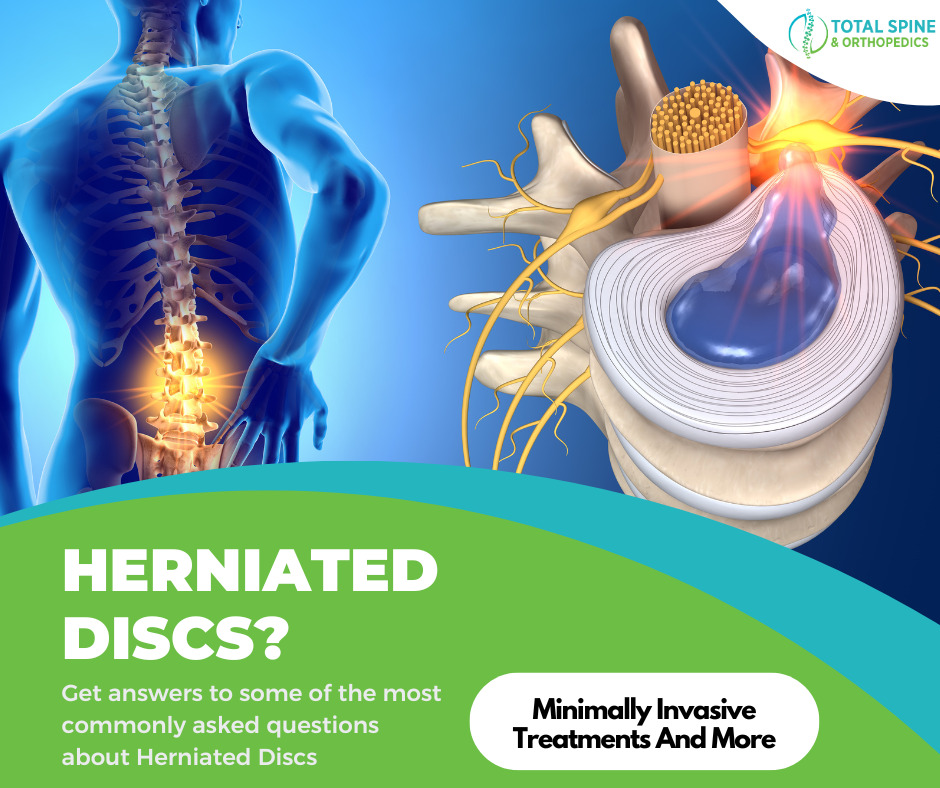Herniated discs can cause significant pain and discomfort, affecting the quality of life for many individuals. It’s important to understand the seriousness of this condition, whether it can heal on its own, the common symptoms associated with it, and the available treatment options. In this article, we will explore these questions and other common questions about herniated discs.
How serious is a herniated disc?
A herniated disc is a spinal condition where the soft inner portion of a spinal disc protrudes through a tear in the outer annulus, potentially leading to nerve compression and pain. The seriousness of a herniated disc varies depending on the individual and the specific circumstances. Many people may have a herniated disc but experience very few or even no symptoms, while others may experience mild discomfort, or even severe pain and functional limitations. Herniated discs without symptoms do not typically need to be treated, but for painful or symptomatic discs, timely diagnosis and appropriate treatment can be crucial to prevent further complications.
Can herniated discs heal on their own?
In certain cases, a herniated disc can heal on its own with conservative treatment measures. When the disc protrusion is small, it may retract naturally over time as inflammation subsides. However, it’s important to note that not all herniated discs can heal without intervention. Factors such as the size of the herniation, severity of symptoms, and overall health play a role in determining whether self-healing is possible. Seeking the advice of an experienced physician is essential to assess the best course of action for each individual case.
What are the most common symptoms of a herniated disc?
The symptoms of a herniated disc can vary depending on the location and severity of the condition. Some of the more common symptoms include:
- Pain: Herniated discs often cause localized or radiating pain in the affected area, such as the lower back or neck. The pain may worsen with movement, coughing, or sneezing.
- Numbness and tingling: Compression of spinal nerves can lead to sensations of numbness, tingling, or a “pins and needles” feeling in the arms, legs, or buttocks.
- Muscle weakness: Weakness in the muscles controlled by the affected nerves may occur. This can result in difficulty in lifting objects, walking, or performing daily activities.
How can a herniated disc be treated?
Treatment options for a herniated disc range from conservative measures to more advanced interventions. The appropriate approach depends on the severity of symptoms and the individual’s overall health. Some common treatment options include:
- Conservative treatment: For small or minor herniated discs. This can include rest, physical therapy, pain medication, and anti-inflammatory drugs to relieve symptoms and allow the body to heal naturally.
- Minimally invasive procedures: For more severe cases, minimally invasive surgeries like endoscopic discectomy or microdiscectomy may be recommended. These procedures involve removing the herniated portion of the disc through small incisions, resulting in less tissue damage and faster recovery times.
- Interventional pain management: Techniques like epidural steroid injections or nerve blocks can help alleviate pain and reduce inflammation in the affected area, allowing for better rehabilitation and healing.
- Consulting an experienced spine surgeon: When considering surgical intervention, consulting with an experienced spine surgeon who can provide a comprehensive evaluation and guide you through the appropriate treatment options is essential.
Herniated discs can have a significant impact on one’s quality of life, but with proper understanding, diagnosis, and treatment, recovery is possible. Remember, the seriousness of a herniated disc varies from person to person, and seeking professional medical advice is crucial for accurate diagnosis and tailored treatment plans. By exploring conservative measures, minimally invasive procedures, and consulting experienced spine surgeons, individuals can find relief, regain function, and restore their well-being. If you think you may have a have a herniated disc, or are just suffering from neck or back pain, give us a call today at (321) 499-4646

